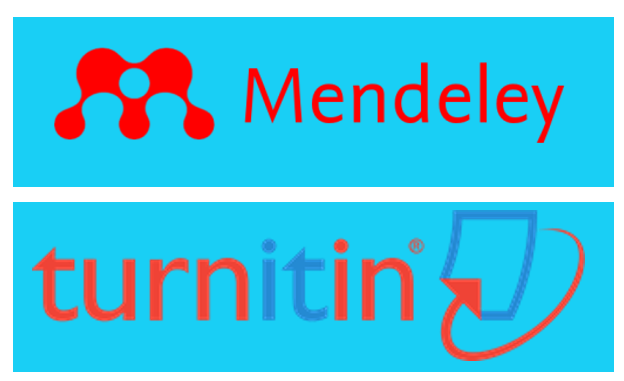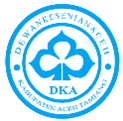United Nations Operations in Democratic Republic of the Congo: A Brief Assessment Report
DOI:
https://doi.org/10.32734/ztanec36Keywords:
UN , Intervention, Issues, Opportunities, Peace, Security, Democratic Republic of the CongoAbstract
This study evaluates the impact of UN peacekeeping operations on the political and social stability of the Democratic Republic of the Congo (DRC). Since the 1960s, the UN has intervened through missions like ONUC, MONUC, and MONUSCO to stabilize the country. However, the DRC continues to face significant challenges, particularly in the eastern regions. The study addresses a critical gap in understanding how these interventions have affected economic development, diplomatic relations, and public perception of sovereignty consolidation. The primary aim of this study is to examine the economic consequences of UN peacekeeping operations, analyze how these missions have influenced the DRC's bi/multilateral diplomatic relations, and explore public opinion regarding the UN’s role in reinforcing national sovereignty. The study seeks to provide insights into the long-term effects of peacekeeping on the DRC’s stability. A mixed-methods approach was employed, incorporating both quantitative and qualitative data. A sample of 300 respondents, including local populations, government officials, and international actors, was surveyed. Data collection involved interviews, surveys, and document analysis. Statistical analysis was performed using SPSS to examine patterns and relationships. The findings reveal that UN peacekeeping missions have had mixed outcomes. While they have contributed to reducing direct conflict, they have not significantly boosted economic development. Diplomatic relations remain complicated due to varying perceptions of the UN’s extended presence. Public opinion is divided, with many questioning the overall effectiveness of the UN in restoring sovereignty. The study concludes that while UN interventions have been essential in mitigating conflict, their long-term economic and diplomatic impacts require further attention. Strengthening local governance and fostering economic development in collaboration with the UN are recommended. Future research should focus on the sustainability of peacekeeping missions and their potential role in driving economic growth in conflict-prone areas.
Downloads
References
Barabara, D. (2005). Souveraineté à l’épreuve des nouvelles formes d’administration internationale de territoires (pp. 87-110).
Bellamy, A. J., & Williams, P. D. (2010). Understanding peacekeeping. Polity.
Onana, C. (2012). Europe, crimes et censure au Congo, les documents accusent. Duboiris.
Coulon, J., & Liegeois, M. (2007). Qu’est-il advenu du maintien de la paix? L’avenir d’une tradition. Calgary: Canadian Defense & Foreign Affairs Institute.
Delcourt, V. B. (2005). Droit et souveraineté: Analyse critique du discours européen sur la Yougoslavie.
Efole, J. (2014). La paix en République Démocratique du Congo (RDC)? Comprendre l’avancée sinueuse de la RDC vers la paix.
Encyclopedia Britannica. (n.d.). Democratic Republic of the Congo. In Encyclopedia Britannica. Retrieved October 8, 2024, from https://www.britannica.com/place/Democratic-Republic-of-the-Congo
FamilySearch. (n.d.). Democratic Republic of the Congo history. Retrieved October 8, 2024, from https://www.familysearch.org/en/wiki/Democratic_Republic_of_the_Congo_History
Fiche technique. (2014). Opérations de maintien de la paix de l’ONU en RDC.
Gros-Jean, M. (2010). L’intervention des Nations unies en RDC: Un succès mitigé mais un modèle sur lequel bâtir.
United Nations Organization Stabilization Mission in the Democratic Republic of the Congo. (n.d.). Retrieved January 28, 2024, from https://monusco.unimissions.org
United Nations Security Council. (1999). Resolution 1279. Retrieved January 28, 2024, from https://undocs.org/fr/S/RES/1279
Journal Officiel de la RDC. (2002). Kinshasa, 1er Juin 2002.
Lederach, J. P. (1997). Building peace: Sustainable reconciliation in divided societies. United States Institute of Peace Press.
Marriage, Z. (2013). Formal peace and informal war: Security and development in Congo (pp. 51-60).
Molamoyi, M. F. (2011). De la MONUC à la MONUSCO: Rupture ou continuité? Mémoire, Faculté des sciences sociales, administratives et politiques, Relations Internationales, Université de Kinshasa.
Momodu, S. (2018). Second Congo Civil War (1996-1997). BlackPast.org. Retrieved from https://www.blackpast.org/global-african-history/second-congo-civil-war-1996-1997/
Muggah, R. (2009). No fixes: The challenges of post-conflict reconstruction. International Peacekeeping, 16(2), 217-234.
Office of the Historian, U.S. Department of State. (n.d.). The Congo, decolonization, and the Cold War, 1960–1965. In Milestones: 1961–1968. Retrieved October 8, 2024, from https://history.state.gov/milestones/1961-1968/congo-decolonization
Parqué, V. (2000). Le rôle de la communauté internationale dans le conflit en République Démocratique du Congo. In L’Afrique des Grands Lacs: Annuaire 1999-2000 (pp. 5-17). Paris: L’Harmattan.
MONUSCO Report on Sexual Abuse Involving Blue Helmets (2009). Consulted February 29, 2024.
Reid, T. (2006). Killing them softly: Has foreign aid to Rwanda and Uganda contributed to the humanitarian tragedy in the DRC? Africa Policy Journal, Spring, 1, 82.
United Nations Security Council. (2013). Resolution 2147.
United Nations Security Council. (2010). Resolution 1925.
United Nations Security Council. (2023). Resolution 2717 prolonging the mandate of MONUSCO until December 19, 2024.
United Nations Security Council. (1960). Resolution 143.
Tamoussi Bonzi. (2007). Mesure des résultats de la MONUC à la lumière des mandats qui lui ont été confiés. UNITAR.
United Nations. (2000). Report of the Panel on United Nations Peace Operations (Brahimi Report).
United Nations. (2015). The United Nations Peacekeeping Operations: Principles and Guidelines.
Wamba dia Wamba, E. (2005). Le leadership et la stabilité politique en République Démocratique du Congo.
Downloads
Published
Issue
Section
License
Copyright (c) 2024 Hypolitte Basi Ngabu, Modeste Ndaba Modeawi, Monizi Mawunu, Jean-Paul Koto-Te-Nyiwa Ngbolua (Author)

This work is licensed under a Creative Commons Attribution 4.0 International License.
- Authors agree to publish their work under the Creative Commons Attribution 4.0 International (CC BY 4.0) license.
- Authors retain copyright to their work and may reuse or distribute it.
- HUMANIOLA reserves the right to request revisions and make final publication decisions.
- Authors are responsible for ensuring that their work does not infringe upon third-party copyrights.
- Archiving in digital repositories may be done for long-term access and preservation.






